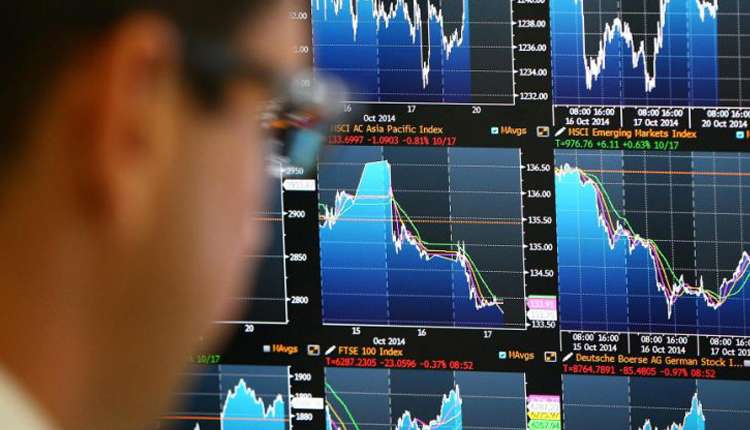European markets closed lower on Monday, after fresh data from China showed its economy grew at its slowest pace since 1990.
The pan-European Stoxx 600 index provisionally sank 0.26 percent, with most sectors and major bourses in the red.
Market players monitored news of slowing growth in the world’s second-largest economy. Official data published Monday said China’s gross domestic product (GDP) in 2018 grew 6.6 percent from the previous year, in line with analyst expectations but at its most sluggish rate in almost three decades.
It’s the latest sign of weakness in the Chinese economy, and comes at a critical time in Beijing’s trade battle with the United States. The two countries have been locked in a tense sparring of tariffs since the start of last year, but are currently trying to prevent any further escalation over the course of a 90-day truce.
Over the weekend, President Donald Trump said a trade deal with China “could very well happen, ” but denied what he called “false reports” that the U.S. was considering lifting duties on Chinese imports.
Telecommunications shares were among the worst performers on the first trading day of the week, dragged down by the likes of Italy’s Telecom Italia and France’s Orange.
Telecom Italia’s share price declined following news that the domestic communications regulator turned down its plan to spin off its landline network. Orange, meanwhile, dropped 1 percent after the company disputed reports that it was mulling a bid for Spanish competitor Euskaltel.
Looking at individual stocks, German chemicals firm Henkel slumped to the bottom of the Stoxx 600 after it released preliminary financial results and said it would hike investments by around 300 million euros ($341.6 million). The stock had slipped 9.7 percent by the mid-afternoon.
On the other end, Air France-KLM rose to the top of the European index after Davy Research upgraded the stock to “outperform” from “neutral.” Shares were almost 10 percent higher by the afternoon.
In corporate news, online food delivery company Just Eat also fell, after it said Chief Executive Peter Plumb would step down and updated its earnings guidance.
Meanwhile, traders await British Prime Minister Theresa May’s announcement of a “Plan B” for Brexit which she is due to present in parliament later on Monday.
Last week, U.K. lawmakers rejected May’s EU withdrawal agreement, an event that was largely expected. The prime minister subsequently won a confidence vote that was tabled by opposition leader Jeremy Corbyn, albeit by a slim margin of 19 votes.
Sterling was barely changed in afternoon trade, trading just below the flatline at $1.2864.
Elsewhere, the International Monetary Fund cut it global economic growth outlook for the second time in three months. The organisation said it now projects a 3.5 percent growth rate worldwide for 2019 and 3.6 percent for 2020 — 0.2 and 0.1 percentage points below its last forecasts in October.
Source: CNBC
